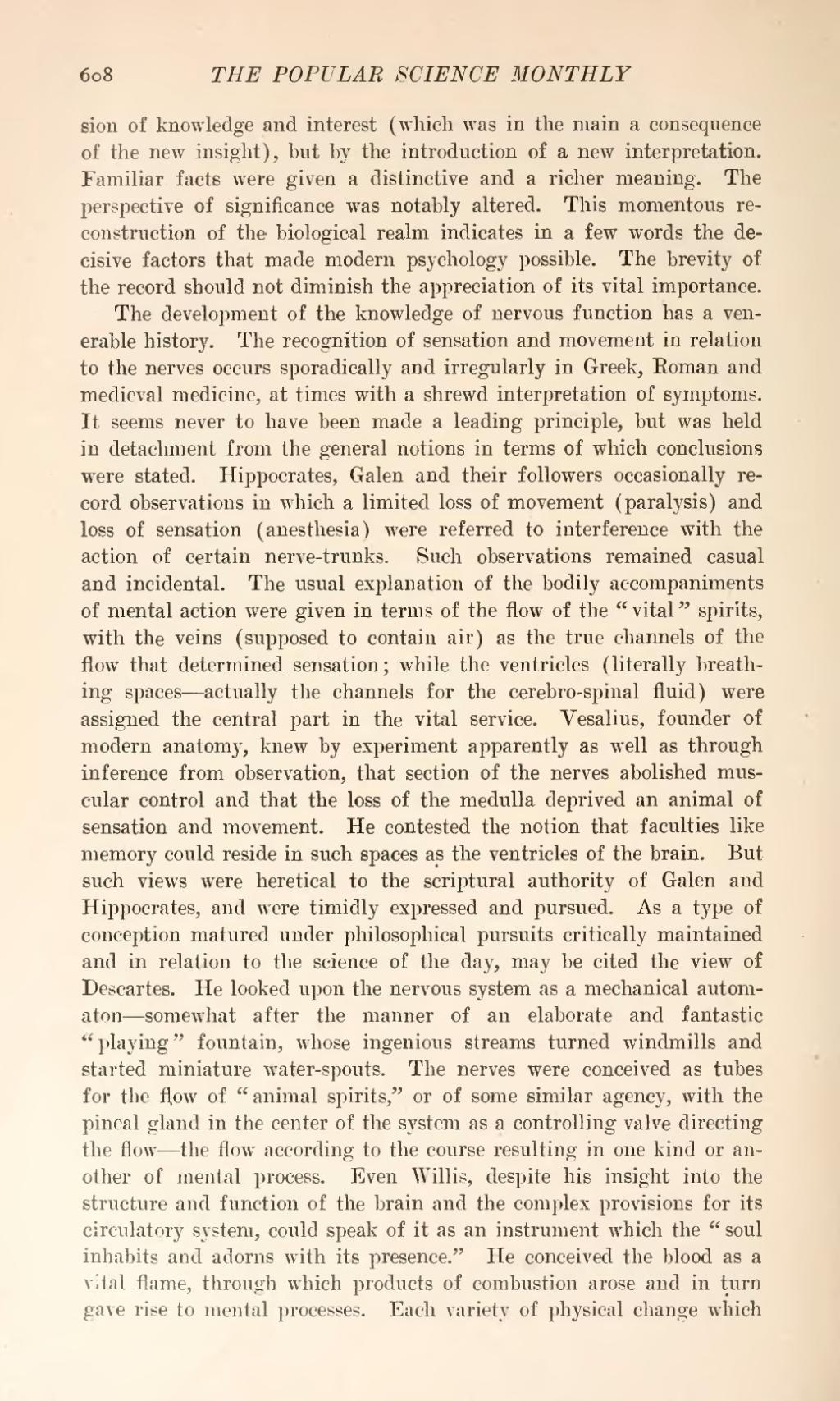sion of knowledge and interest (which was in the main a consequence of the new insight), but by the introduction of a new interpretation. Familiar facts were given a distinctive and a richer meaning. The perspective of significance was notably altered. This momentous reconstruction of the biological realm indicates in a few words the decisive factors that made modern psychology possible. The brevity of the record should not diminish the appreciation of its vital importance.
The development of the knowledge of nervous function has a venerable history. The recognition of sensation and movement in relation to the nerves occurs sporadically and irregularly in Greek, Roman and medieval medicine, at times with a shrewd interpretation of symptoms. It seems never to have been made a leading principle, but was held in detachment from the general notions in terms of which conclusions were stated. Hippocrates, Galen and their followers occasionally record observations in which a limited loss of movement (paralysis) and loss of sensation (anesthesia) were referred to interference with the action of certain nerve-trunks. Such observations remained casual and incidental. The usual explanation of the bodily accompaniments of mental action were given in terms of the flow of the “vital” spirits, with the veins (supposed to contain air) as the true channels of the flow that determined sensation; while the ventricles (literally breathing spaces—actually the channels for the cerebro-spinal fluid) were assigned the central part in the vital service. Vesalius, founder of modern anatomy, knew by experiment apparently as well as through inference from observation, that section of the nerves abolished muscular control and that the loss of the medulla deprived an animal of sensation and movement. He contested the notion that faculties like memory could reside in such spaces as the ventricles of the brain. But such views were heretical to the scriptural authority of Galen and Hippocrates, and were timidly expressed and pursued. As a type of conception matured under philosophical pursuits critically maintained and in relation to the science of the day, may be cited the view of Descartes. He looked upon the nervous system as a mechanical automaton—somewhat after the manner of an elaborate and fantastic “playing” fountain, whose ingenious streams turned windmills and started miniature water-spouts. The nerves were conceived as tubes for the flow of “animal spirits,” or of some similar agency, with the pineal gland in the center of the system as a controlling valve directing the flow—the flow according to the course resulting in one kind or another of mental process. Even Willis, despite his insight into the structure and function of the brain and the complex provisions for its circulatory system, could speak of it as an instrument which the “soul inhabits and adorns with its presence.” He conceived the blood as a vital flame, through which products of combustion arose and in turn gave rise to mental processes. Each variety of physical change which
